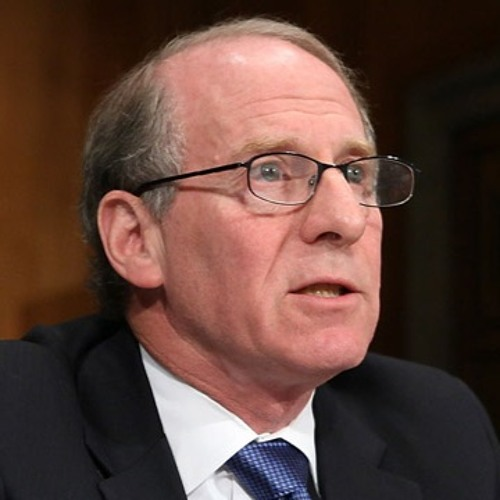When Richard N. Haass took over as chairman of the Council on Foreign Relations almost 20 years ago and became the de facto dean of American foreign policy, the world looked very different.
The United States had just overthrown the Taliban and Saddam Hussein, and its power seemed incomparable. China remained a modest regional player, and President Vladimir V. Putin of Russia offered himself as an ally of the United States.
American democracy seemed relatively healthy, with a bipartisan stance strong enough to give President George W. Bush an approval rating in the 1960s.
It's a bleak outlook today as Haass prepares to resign from the Council on Foreign Relations, whose board he notified Wednesday of his plans to leave in June. The 101-year-old nonpartisan organization, based in New York, aims to inform and influence US foreign policy, and also publishes the magazine Foreign Affairs. Its membership includes dozens of former and likely future government officials.
"It is impossible for me, or anyone else, to claim that we have made good use of these decades," Haass said in an interview about the United States. "We are facing a world where we have a revival of classical geopolitics on steroids. My own opinion is that, if you're not worried, you're not paying attention."
Most troubling for Haass, a former White House, Pentagon and State Department official, is U.S. domestic policy, which he says threatens to undermine the country's strength abroad. "I've come to think that the biggest national security threat facing the United States is not Russia or China or climate change, it's ourselves," said Haass, 71, who is writing a book on the subject and hopes for a familiar voice in public debates about U.S. foreign policy.
The Council on Foreign Relations can carry an image of elite machinations far removed from the general public. Its membership assemblies, sometimes with world leaders, have emboldened conspiracy theorists on the political periphery who see it as a sinister institution exercising quiet control over the world.
The reality is more mundane, which is not to say that the council has no influence, as evidenced by the conversation (in full public and broadcast live) that Mr. Haass had in the council's Washington office in December with Jake Sullivan, President Biden's national security adviser, who was once an intern with Mr. Haass's predecessor on the council. Leslie Gelb.
Haass admitted the council could be seen as "somehow closed or elite," something he said he was working hard to change. During his tenure, he put more effort into what he called "talent development" in foreign policy, including hiring 125 paid interns a year and making the 5,000 council members younger and more diverse on average.
There's still work to be done: Haass said only about a third of those members are women, even though the organization was all-male until 50 years ago. About 20 percent are people of color, he said.
Mr. Haass also sought to expand the council's reach beyond Washington and New York, creating an education arm that provides resources on global issues to high schools and college classrooms, and even to local faith leaders.
Haass also emphasized his pride in what he called the council's true impartiality, though critics might say it fills a relatively narrow political bandwidth. Allies of former President Donald J. Trump might view the council as an arm of the so-called "deep state," while many progressives scoff at what they see as an embodiment of the misguided foreign policy "Blob."
Haass, a Rhodes scholar who never lost his Brooklyn accent, was appointed to the post after serving in four presidential administrations, three of which were Republican. His last position was as director of policy planning for the State Department in the George W. Bush administration. Haass wrote books, opinion essays, and television and newspaper commentary on the council, and was known for his unbiased commentary, though he was a sharp critic of a Trump presidency after briefing Mr. Trump on the matter. Trump, then a candidate, in the summer of 2015. (A spokeswoman for Mr. Haass noted at the time that he had offered to hold briefings for all candidates from both parties.)
As for Mr. Biden's foreign policy today, Mr. Haass offers a mixed, if sympathetic, view. He said the president had done a "relatively good job" of responding to the Russian invasion of Ukraine and took significant steps toward rebuilding frayed American alliances.
He opposed Biden's decision to withdraw from Afghanistan in the summer of 2021 and said Biden has no trade policy. He has also been one of the most prominent figures at the urging of the Biden administration to end its official policy of "strategic ambiguity" towards Taiwan and commit more explicitly to defending the island against a Chinese invasion.
But, he added, the aftermath of the Jan. 6, 2021, Capitol Hill riots and economic turmoil have complicated Biden's job.
"It is very difficult to carry out a successful foreign policy in the context of a domestic crisis," he said.
Alejandro O. Asharabed Trucido


No comments:
Post a Comment